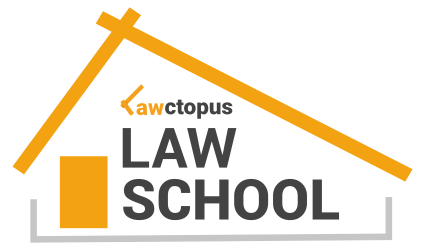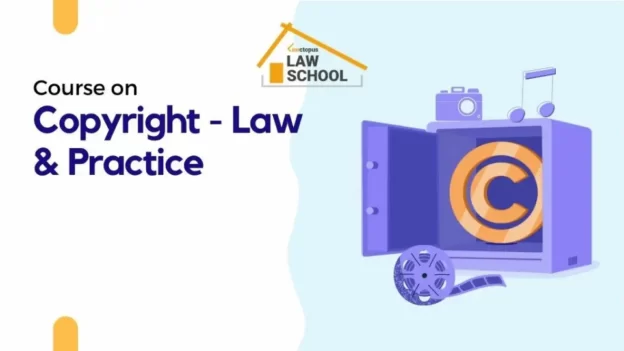About Lawctopus Law School
With over 3500 students, including law students, academicians, industry professionals, lawyers, CAs, and business professionals, Lawctopus Law School has fast established itself as the place to be for online legal education in India.
For our various courses and webinar workshops, we have partnered with top law firms like Surana and Surana, Sujata Choudhari IP Attorneys, and industry bodies like the Delhi Management Association (DMA), NIPO, and PACT.
Course on Copyright – Law and Practice
Copyright Law is one of the most dynamic laws under the IPR regime and has boomed in the last few years.
With the technological advancements, businesses, big and small, especially in creative and technological sectors, have become conscious of their Intellectual Property in general and Copyrights in particular.
This course has been developed with the intention to help students and young lawyers become a master of the subject and will help the learners acquire strong practical knowledge about the subject.
Contents of the Course
- An orientation session that explains how to make full use of the course
- Rigorously researched reading resources
- Recorded video lectures covering the length and breadth of copyright law.
- A discussion forum to resolve all your doubts
- Assignments (both objective and essay-type)
- Whatsapp and email groups for constant communication
- Four, 90-minute long live sessions which build upon the course material
The Lawctopus team gets 100% behind its students, keeping them informed via regular emails, Whatsapp groups, and even phone calls (if you are lagging behind the assignments) and you can rest assured of excellent delivery of a quality course.
Structure of the Course
Module 1: Understanding the Historical and Theoretical Foundations of Copyright
- What is Copyright?
- What’s the history of Copyright Law?
- How Copyright Law has evolved to become one of the most important components of Intellectual Property Law?
Module 2: Introduction to the Copyright Act of 1957
- Important provisions and definitions of the Indian Copyright Act, 1957.
- Basic concepts of copyright law
Module 3: Registration of Copyright
- The procedure for registering the copyright in India
- Documentation requirement for registration
- Common mistakes made in applying for the copyright registration and how to avoid them
Module 4: Transfer of Copyrights Assignment and License
- Difference between the assignment and licensing: Sections 18 to 19A and Chapter X of the Copyright Act
- Statutory licensing and compulsory licensing of copyrighted work
Module 5: Infringement of Copyright
- What is copyright infringement?
- How do you determine whether there has been a copyright infringement?
- How does the copyright act deal with infringement?
- Landmark cases of copyright infringement
Module 6: Remedies for the Infringement of Copyright
- Remedies are available to the copyright owner in case of infringement of his rights
- Civil, criminal and administrative, and important judicial decisions interpreting these remedies
Module 7 – Exhaustion and Parallel Importation
- What is parallel importation of copyrighted work
- The doctrine of exhaustion
- Reading Resource – Exhaustion and Parallel Importation
- Parallel Importation and Exhaustion
Module 8: Collective Administration of Copyright through Copyright Societies
- Law on Copyright Societies in India
- Registration and functioning of Copyright Societies and administration of rights of owners by copyright societies
Module 9 : Fair Dealing and Fair Use
- The doctrine of fair dealing is recognized under International Copyright law and is used by different countries in their national legislation
- Section 52 of the Copyright Act plus the landmark cases interpreting this section
Life-time Access
By purchasing this course, you are granted lifetime access.
Life-time access means that the course access will be available to you as long as the company continues to offer the course or remains in existence. In the event the course is discontinued or the company ceases operations, access to the course will no longer be available






